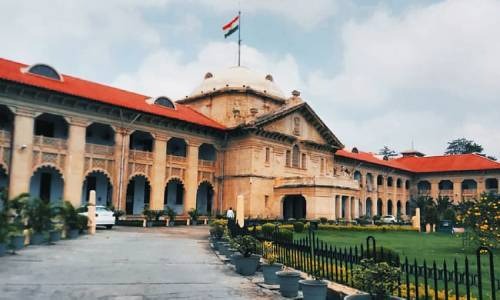
In case of Satakshi Mishra v. State Of U.P. Thru. Prin. Secy. Secondary Edu. Dept. Lucknow And 4 Others, the Allahabad High Court stated that there is no specific time gap or difference between the first and second child in order to grant maternity benefits. The maternity leave of an Inter College lecturer had been denied because she had already taken maternity leave that had ended on May 18, 2018, which was for a shorter period of time than 2 years, as a result, she was not eligible for the leave as per Rule 153(1) of the Financial Handbook.
She argued before the court that she had submitted an application for maternity leave for a period of 174 days between November 26, 2017, and May 18, 2018, which had been duly approved. The petitioner had given birth to a baby boy on January 29, 2018, but he tragically died from cardiorespiratory infection just one day later.
The petitioner experienced a second pregnancy and submitted an application for maternity leave for a period of 24 weeks from November 18, 2018, to May 16, 2019, which was denied.
She contended that Rule 153(1) of the Financial Handbook is in conflict with the statutory provisions of the 1961 Act since there is no set amount of time that must pass between the births of a first and second child in order to qualify for the grant of maternity benefits.
The bench of Justice Alok Mathur noted at the outset that a reading of the 1961 Act's provisions shows that a woman would be entitled to give written notice before receiving maternity benefits, and that upon receipt of the notice, the employer would be required to allow the woman to excuse herself from the workplace for the duration of the period in which she receives the benefits.
The Court concluded that the respondents' reliance on Rule 153(1) of the Financial Handbook in rejecting the petitioner's request for maternity leave constituted a clear error.
As a result, the Court determined that after the State of U.P. implemented the Maternity Benefit Act, 1961's provisions. The Financial Handbook, which is only an executive order and would, in any case, be subsidiary to the law produced by the Parliament, would then have no bearing on the provisions of the aforementioned Act of 1961, which would apply with full force regardless of its contents and the court noted that "The Maternity Benefit Act 1961 has been enacted by the Parliament on a subject which finds mention in entry 24 of list III, and it was totally within its competence to make such an enactment. Even if the State legislature were to make such a law, overriding the provisions contained in the Maternity Benefit Act then the said act would be reserved for assent of the President and would be enforceable only after obtaining such an assent as provided in article 254(2) of the Constitution of India"

